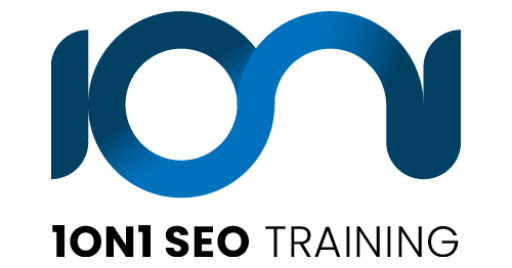If you're thinking of shifting to a better-paying and more fulfilling career this year, you've probably been thinking of signing up for SEO specialist training or any other SEO job training course. The global SEO industry has experienced massive growth in recent years, and during the pandemic, the need for better digital exposure has bolstered SEO providers everywhere.
In short, you're not going to run out of clients or potential employers in the SEO industry. It is robust and relevant, and businesses are regularly spending their marketing budgets on SEO because it is a practical way to do digital marketing.
Once you have been trained as an SEO Specialist part of our meeting we can devote to reviewing your resume, LinkedIn profile, and even applying for a new job at an online SEO job website togethor.
Alongside the increased demand for SEO specialists, there is also an increased demand for professional SEO tools and experts who can man these apps to get better results. Signing up for custom enterprise plans is just the first step. Businesses still need SEO specialists to use the tools.
Setting Expectations: What You'll Learn in SEO Specialist Training
SEO Fundamentals
In this course, you'll learn about the history of search engines and how they became so ingrained in our daily lives. This part of SEO specialist training will teach how Google and other search engines crawl, index, and rank online pages. You'll also learn how to develop goals and KPIs for your SEO strategy and assess your own website's SEO authority using the attached worksheet.
Technical SEO and On-Page SEO
SEO specialist training entails learning how to optimize your website for search engines to crawl and index it in this session. You'll learn how Google indexes your pages, develop meta descriptions, and link text. SEO experts must also learn about industry best practices to optimize content for organic traffic. You'll also learn how internal linking affects optimization efforts and how to create the best URLs for the best results and technical SEO fundamentals.
Search Engine Optimization Keyword Research
You'll learn why keyword research is necessary and how it dramatically helps businesses plan their content strategies. Discover how to properly conduct keyword research for your website using a step-by-step process and how a topic cluster content strategy can help your SEO.
Increasing the Effectiveness of Your Backlink Strategy
In your SEO job training course, you'll learn why link building is vital for SEO, how to calculate how many links your website needs to rank on Google's first page, and how to develop links at scale by cultivating meaningful relationships with the right people over time. In this SEO job training course, you'll also learn to follow and answer press request alerts step by step, which is an essential link-building strategy. Backlinks from high-quality media sites can be obtained by responding to press request alerts.
Getting Rich Results
With lessons in rich results, you will learn about the current structure of search engine results pages (SERPs) and the function that rich results play in them. You'll discover why structured data is essential and how to use it on your website. You'll also learn to optimize your content for Google's featured snippets.
Reporting on SEO
In this part of the SEO job training course, you'll discover why tracking your SEO development is crucial to your success. You will also analyze Google Analytics 4 and Google Search Console to figure out which metrics to track and how to report on your efforts.
Local SEO
Local SEO makes local businesses more prominent in Google's local SERPs. Local SEO mainly benefits businesses that have physical locations. However, businesses that also serve a specific geographic area will need better local SEO to remain competitive.
Local SEO can improve your business, period. Clients will get more customers and leads if they're constantly found on Google for essential keywords.
After studying user behavior across trillions of searches, Google determined that customers looking for specific types of businesses want results from their immediate area. That's why Google's local search algorithm contains a proximity component, which is a fancy way of saying that Google considers your location (a query with local intent) when you search for a local keyword. This happens even if the person searching for information does not include the name of a town or city or a "near me" in their query.
What Are the Responsibilities of an SEO Specialist?
SEO specialists assist websites in ranking higher in search engines such as Google, Yahoo!, and Bing. Therefore, it is crucial to get the proper SEO job training course. On-page SEO ensures relevant search results and a positive user experience, increasing site traffic, lead volume, and brand awareness.
The primary tasks of an SEO specialist are the same as that of any marketer. However, the specialist is mainly tasked with boosting the company's revenue.
On-page techniques such as keyword tags, internal linking, and clean URLs are used. An SEO expert can boost a website's search engine visibility, resulting in more visitors and sales. Title and meta tags, URL redirection, and 404 errors are all things that need to be implemented and maintained. This specialist is also tasked with monitoring Google Search Console and other webmaster tools and researching the web presence of key competitors in the industry or market. In addition, he seeks out possibilities to create links and is frequently tasked with negotiating contracts with vendors and organizations.
Some work directly with marketing and creative team members to develop new initiatives and manage or administrate social media accounts to increase user engagement. The importance of search engine optimization in search engine marketing cannot be overstated (SEM). SEO specialists should be familiar with SEM, but it is super helpful to anyone working in marketing.
Communication abilities are crucial. You must be able to identify the best action and explain why it is ideal for a client who employs you to grow his website. They need to understand what you're doing so they can take ownership of it and trust that you're making the best judgments for their business or company.
Knowing how to analyze risks, distinguishing between modifications that will severely impede a website's advancement and adjustments that will help it advance, and forecasting trends and how they will affect future traffic are essential talents for an SEO specialist.
Of course, you'll need to be familiar with Google Analytics (or another web analytics tool) and SEO tools like SEMrush and Moz.




